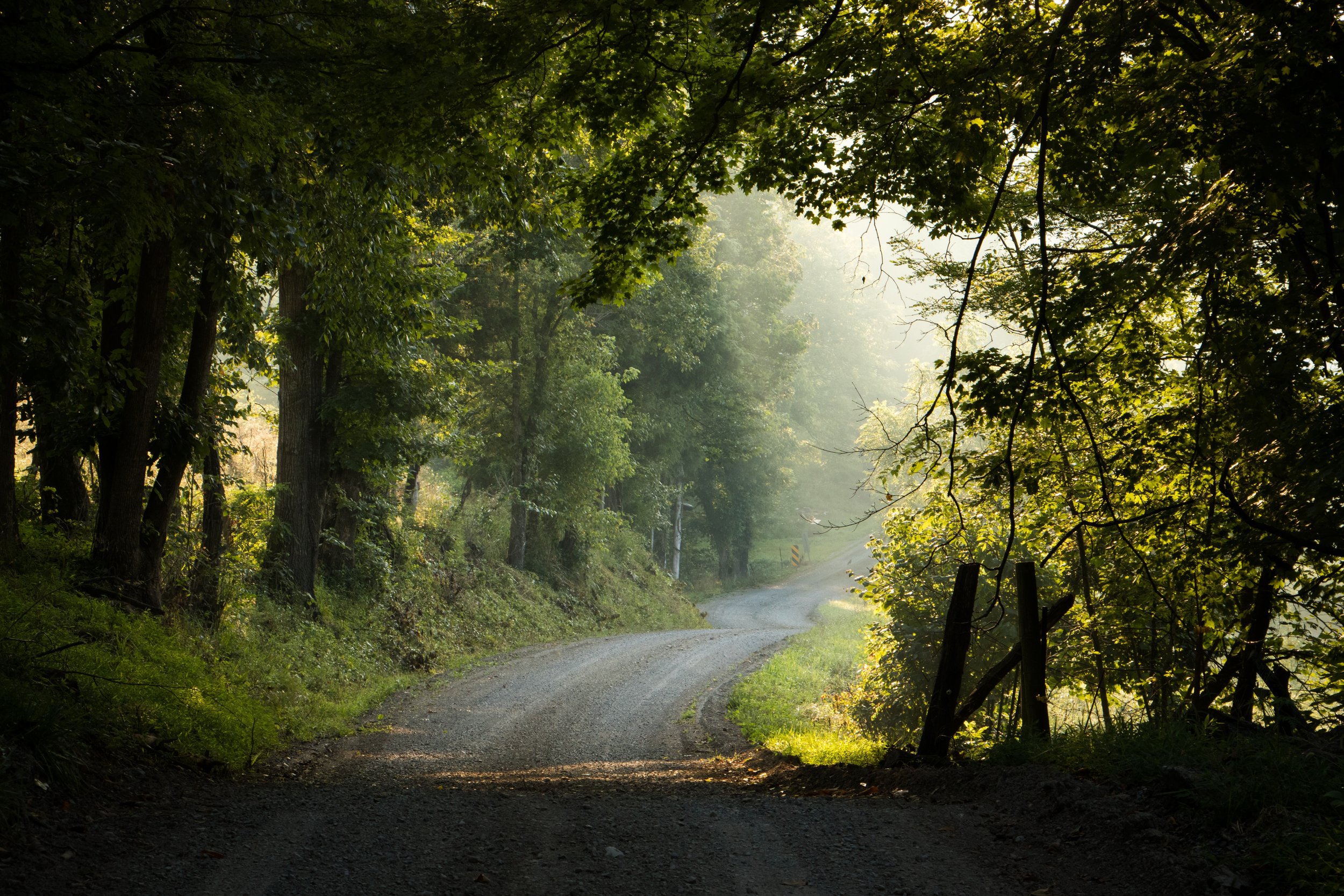Doozy Miller: The Spoiling of Henry James

A few summers ago, my husband and I traveled to Florence and Lucca in Tuscany. It was everything I hoped it would be. Until it wasn’t. But I’m getting ahead of myself.
On our last day in Florence, before catching our train to Lucca, we took a parting look at the Duomo, at once majestic in its scale yet rustic with its russet-hued dome, the core from which Florence radiated. It was midmorning and already 100 degrees so we treated ourselves to some gelato. Just as we finished the last licks of our new favorite flavors, fior di latte and frutti di bosco, we stumbled upon an English bookstore.
Once inside, I hastily looked over the titles which largely fell into two categories: 1) mass market thrillers by Michael Crichton, Tom Clancy, and the likes, 2) literary classics. Not being a fan of murder mysteries or political intrigues, I searched the literary classics and spotted a secondhand copy of 19th century American author Henry James’s Daisy Miller. I had read James’s first book, The American, the previous year while on vacation and had fallen in love with his incredible ear for dialogue and his insightful depictions of 19th century European society life, albeit a narrow slice of society. I have no shame in confessing that at the time, Season 1 of Downton Abbey had just ended and The American had filled a void in my life for period drama. Imagine, a book that filled the void left by a TV show.
If it was 100 degrees outside, it was 110 degrees on the train to Lucca. As it pulled out of the station, sweat streamed down all parts of me. My husband dozed and I needed a distraction from the oppressive heat. Remembering Daisy Miller, I pulled it out of my bag.
Before I read a book, I like to turn it around in my hands and get familiar with everything but the text. I peruse its cover art, flap copy, author bio, promo blurbs, and dedication. I flipped to the last blank page of the book, and there scribbled diagonally in black ballpoint pen were the words: “dies because of ignorance and disobeying society.” My eyes widened as I thought, “Wait, did someone just give away the whole gestalt of the book not to mention the ending? What the hell!” And as if they hadn’t made enough of a hyperbolic statement, the writer punctuated it with a star. Flummoxed, I decided to forge ahead but only after conferring the book’s previous owner with the nickname, Doozy Miller, because of the doozy of a spoiler they splashed across that final page.
Soon I was seduced once again by Henry James as he introduced me to the four main characters. The title character, Daisy Miller, is a young, rich American girl on her first trip through Europe, who is by turns obtuse and refreshingly honest, depending upon whom you ask. Winterbourne, the protagonist, is an old-wealth English dandy who obsessively ponders whether Daisy Miller deserves his love, hatred, or condescension for being a “flirt.” Mrs. Costello, Winterbourne’s aunt, is a stodgy, grande dame, seeking to protect her nephew from the grubby fingers of the nouveau riche as well as suspicious “foreigners,” like Giovanelli, a handsome, young Italian, who ensnares Daisy with his “foreign” ways, like singing at parties.
James’s sparkling dialogue, like this one between Winterbourne and Mrs. Costello, reveals through its barbs James’s predilections:
“The young girl is very pretty,” said Winterbourne, in a moment.
“Of course she’s pretty. But she is very common.”
“I see what you mean, of course,” said Winterbourne, after another pause.
“She has that charming look that they all have,” his aunt resumed. “I can’t think where they pick it up; and she dresses in perfection – no, you don’t know how well she dresses. I can’t think where they get their taste.”
“But my dear aunt, she is not, after all, a Comanche savage.”
“I have no shame in confessing that at the time, Season 1 of Downton Abbey had just ended and The American had filled a void in my life for period drama. Imagine, a book that filled the void left by a TV show.”
Ah! Racism makes an appearance – and in under twenty pages! As someone who is ethnically from India, I had no doubt I would’ve received the same treatment from Henry James as did most of the “foreigners” (read non-white characters) in James’s books— portrayed as morally and intellectually deficient—and things would’ve ended badly for me.
James is not subtle about his racism, chauvinism, or classism. One is not left to tease meaning from his lines or ponder abstract allusions. But all the same, Doozy Miller’s margin notes held curious revelations, which only underscored how James unabashedly layers anti-American sentiment with chauvinism. Scrawled in blue ink in the margin of one page was, “Daisy = America, America is not awakened by art and history,” while notes on another page read, “by calling Daisy Miller a flirt, he (Winterbourne) hopes she is a European flirt, not an American flirt.” Reading this I wondered what distinguished an American from a European flirt, other than geography.
So, given all this why would I continue to read Henry James? Well, for one thing, the deliciousness of exchanges like this one between Winterbourne and Daisy:
The young girl looked at him more gravely, but with eyes that were prettier than ever. “I have never allowed a gentleman to dictate to me, or to interfere with anything I do.”
“I think you have made a mistake,” said Winterbourne. “You should sometimes listen to a gentleman—the right one.”
Daisy began to laugh again. “I do nothing but listen to gentlemen!” she exclaimed. “Tell me if Mr. Giovanelli is the right one.”
Given that James’s young female characters are generally preoccupied with preserving their virginal reputation against social stigma, I wondered if Daisy and other young women of that era on their Grand Tour of Europe were permitted to view the bounty of beautiful, lush nude sculptures, including Michelangelo’s David, another of Florence’s focal points. Or were their impressionable eyes and minds ushered away from those scandalous works by cautious chaperones, lest they be transformed into flirts?
It was not until months later as I came across my copy of Daisy Miller on my bookshelf and reminisced about Tuscany that I realized a curious connection between my trip and the book. When I thought about Florence, images of its charming, narrow streets floated through my head. Similarly, when I thought of its foods, I relished the memories of simple yet succulent dishes we ate and prepared (pizza, penne pomodoro, and tiramisu) when we took a cooking class with master chef, Giovanni. As I meditated on this memory and looked deeper, I remembered how Giovanni was an adept cook and teacher and also an incredible flirt. A beautiful Australian lady in our class caught his attention and he oozed sensuality while showering her with compliments. I also remembered an Israeli father and his twelve-year-old daughter whom I had found adorable until I spied her digging her finger so far up her nose that I dry heaved a bit in my mouth. I remember being grateful we would only be eating the dishes we had prepared ourselves. Even though we frequently use the culinary lessons we received that day to cook up delicious fare, and we remember our time in Florence with nostalgia, it seems I buried these unsavory moments in my memory.
The author in Lucca with her tandem bike.
Lucca is a scenic Tuscan town, surrounded by a fortifying wall. The wall that was created centuries ago to keep invaders out is now a meeting place for townsfolk and tourists, alike, with exercise fiends and Italian nonnas and families strolling alongside each other on the wall’s elevated path. One of my favorite memories is of my husband and I tooling along it on a tandem bike. On one side, we took in views of the town’s stone buildings and terracotta roofs. On the other, we were treated to views of the Tuscan countryside, rolling hills, dotted with cypress trees. But again, if I pause on this memory and examine it further, I can recall us taking a break in front of a particularly beautiful swath of countryside. For a moment, we had hopped off our bike and sat on a nearby bench, ignoring the loud sounds coming from the town side of the wall, just behind us. But a few seconds later, we could not evade the foul stench wafting up to us—we turned to see a big truck emptying a long row of porta potties just beyond the wall. We covered our noses and ran for our bike.
Looking back at my journey in Tuscany without the aid of rose-tinted glasses and viewing Henry James’s Daisy Miller through the lens of modernity and its hard-won progress, there are obvious parallels. They remind me that nothing, not even the picturesque Tuscan countryside or a piquant novel is without flaws, sometimes gaping, smelly, chauvinist, racist flaws. The key is not to ignore them. Instead, acknowledge them but pedal as fast as you can, while taking in all that is beautiful and right.
ABOUT THE AUTHOR
Kavita Das writes about culture, race, feminism, and their intersections. Nominated for a 2016 Pushcart Prize, Kavita’s work is published or forthcoming in Tin House, Longreads, The Atlantic, Off Assignment, Los Angeles Review of Books, The Washington Post, Kenyon Review, NBC News Asian America, Guernica, Quartz, McSweeney’s, The Rumpus, and elsewhere. Her first book, Poignant Song: The Life and Music of Lakshmi Shankar (forthcoming from Harper Collins India), is a biography about the Grammy-nominated Hindustani singer, who played a pivotal role in bringing Indian music to the West. Kavita is also at work on a collection of personal essays. You can find her on Twitter at @kavitamix.
Header photo by Jonathan Körner













